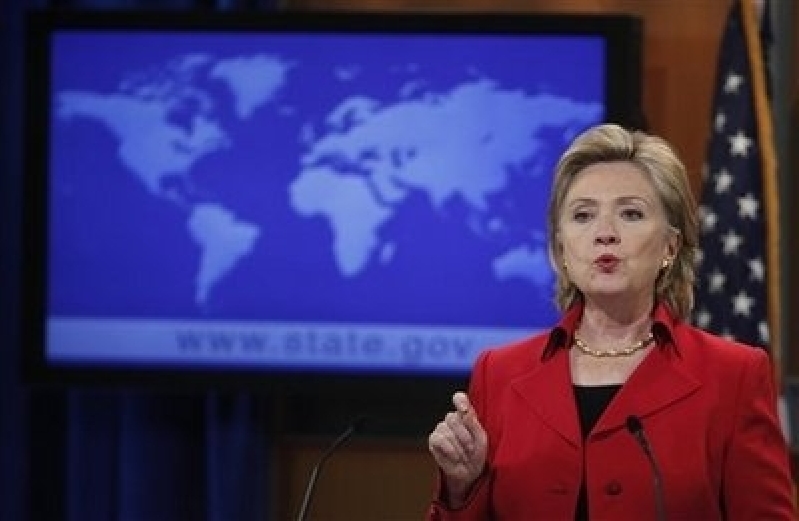
U.S. Secretary of State Hillary Clinton voiced strong opposition Monday to proposed U.N. resolutions on “defamation of religions,” saying that such policies would restrict free speech.
In opening remarks for the release of the State Department’s Annual Report on International Religious Freedom, Clinton said that while some claim so-called defamation of religions policies would help protect freedom of religion, she “strongly disagree[s].”
“The United States will always seek to counter negative stereotypes of individuals based on their religion and will stand against discrimination and persecution,” Clinton stated. “But an individual’s ability to practice his or her religion has no bearing on others’ freedom of speech.”
The protection of speech about religion and religious discourse is important in a world with many different faith beliefs, asserted the high-ranking U.S. diplomat.
Earlier this year, the U.N. Human Rights Council adopted an anti-defamation draft resolution that human rights groups warn would protect a religion rather than adherents of religions.
Leonard A. Leo, chair of the U.S. Commission on International Religious Freedom, last week testified to Members of Congress that the only religion and religious adherents that are specifically mentioned in the “defamation” resolutions – this year’s and past years – are Islam and Muslims.
“Aside from Islam, the resolutions do not specify which religions are deserving of protection, or explain how or by whom this would be determined,” Leo stated.
Several prominent groups working with persecuted Christians have also spoken out against the resolutions, which are sponsored annually by the Organization of the Islamic Conference, because they say the policies would be manipulated to further harass Christians and other religious minorities in Muslim-majority countries.
“Many Christians living in these countries [that make up the Organization of Islamic Conference] are already severely impacted by restrictive laws – especially those living under strict Shariah law,” said Open Doors USA President/CEO Carl Moeller. “From the right to worship freely to the ability to share the Gospel, the Defamation of Religions Resolution threatens to justify local laws that already marginalize Christians."
Since 1999, the Organization of the Islamic Conference has annually sponsored a "defamation of religions" resolution in the U.N. Human Rights Council, and, since 2005, in the General Assembly.
The resolution adopted this past March by the U.N. Human Rights Council is currently non-binding, but OIC has publicly stated that its goal is for the U.N. to adopt a binding international covenant against the “defamation of religions.” Next month, a similar resolution will be considered for adoption by the General Assembly.
In addition to USCIRF and Open Doors, other groups that have denounced the “defamation of religions” resolutions include: The Becket Fund for Religious Liberty, Freedom House, U.N. Watch, and Christian Solidarity Worldwide.
Following Secretary of State Hillary Clinton’s remarks on religious freedom and the anti-defamation policies, Michael Posner – assistant secretary of state for democracy, human rights and labor – reported improvement in the Philippines, Jordan, Qatar and Spain, which have displayed efforts and initiatives to promote interfaith understanding.
But Posner also stated that many governments have increased restrictions on religious freedom this year.
During the press conference, Posner talked about poor religious freedom in Cuba and discussed about his mixed emotions on China. He said that while he is encouraged by the rapidly growing Christian community, he is concerned about the treatment of Buddhist religious leaders in Tibet.
The State Department’s annual report precedes an expected update from the department on the list of “countries of particular concern” – the category for the worst religious freedom violators. The last U.S. list released in January included Saudi Arabia, Myanmar, China, North Korea, Eritrea, Iran, Sudan and Uzbekistan – the same countries that made the list in 2008.







